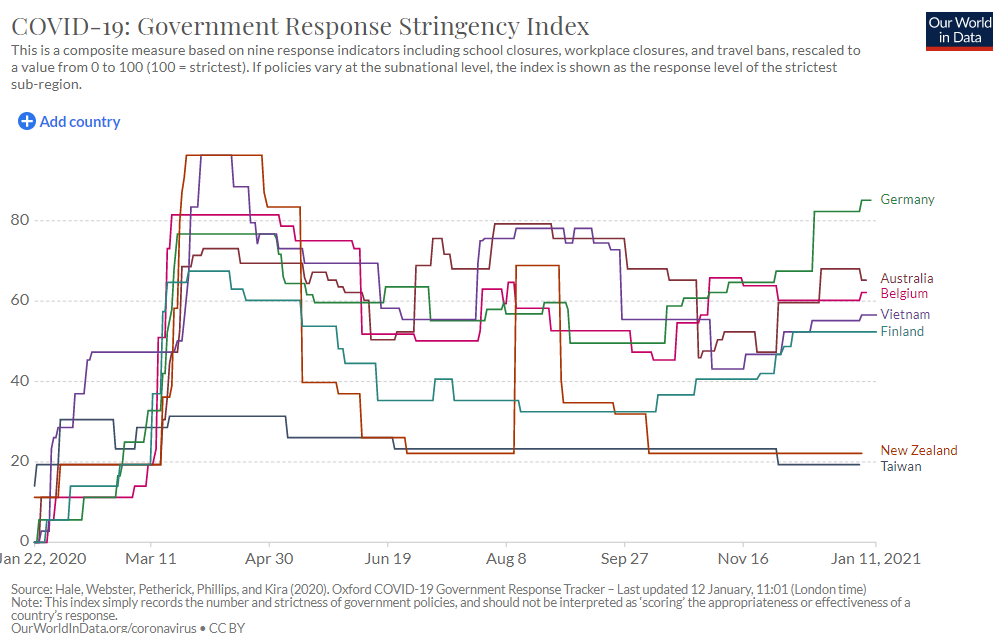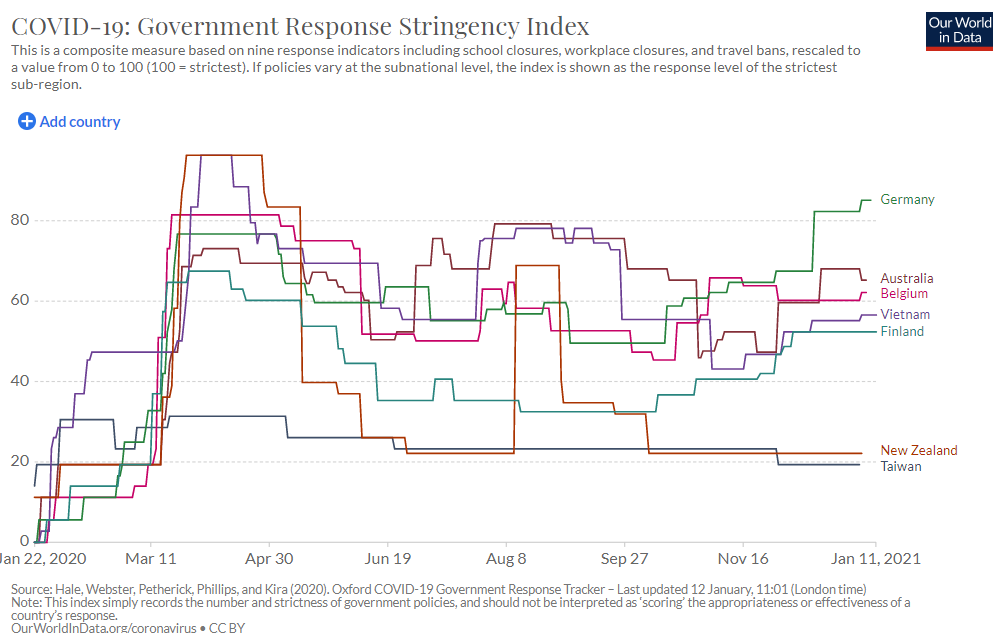I understand where you are coming from, but I think you are overestimating the transferability of COVID-policies and their effects on outcomes. Policies are inherently dependent on time and context. The exact same measures will get you different results in different contexts. 1/ https://twitter.com/GidMK/status/1349118475239755776
We can't really explain the difference between Asia and EU. Taiwan: one of the "softest" measures in the world, few tests performed, with a test positivity of 40%(!), but border control. Yearly flu deaths rarely exceed a couple of hundred. What can be inferred? 2/
Finland: good track and trace, reacted early as their cases were lagging due to less integration, again among the softest policy response in EU, but with consistently the lowest numbers. Digitalization rate on a different planet compared to Germany. What does that tell us? 3/
We have a massive confounding/endogeneity problem in these analyses. If we take China's Economic policy and apply it to another country we would never expect the same results. Adopting the Finnish education policy will not give you similar PISA results, maybe not even close. 4/
Adopting NZ/Aus/ or Taiwan approaches will in many places not lead to a similar level of success. We can learn, and I applaud NZ/AUS success. But we cannot ignore the structural, cultural, and geographic contexts in which policy decisions are embedded that influence outcomes. 5/
Saying "You can achieve Y by doing what X did" might work sometimes, but often might not, because of other variables that can't be transferred. So even if you choose to control with similar tools, you might fail - as many have done. It's like you say: one size doesn't fit all. /6

 Read on Twitter
Read on Twitter




